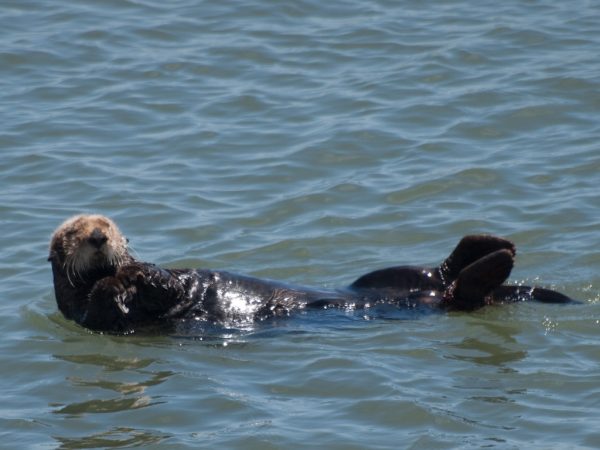Quick Facts about Sea Otter Awareness Week:
- Observance Period: Last week of September
- Main Objective: To highlight the crucial ecological role of sea otters and advocate for their conservation.
- Primary Advocates: Marine biologists, conservationists, coastal communities, and animal enthusiasts.
- Key Message: Sea otters are not just charismatic creatures but are vital for the health of coastal ecosystems, notably kelp forests.
- Target Audience: General public, educators, policymakers, marine enthusiasts, and conservationists.
Introduction: The Enigmatic Sea Otter
During the last week of September, the world shines a spotlight on sea otters, celebrating Sea Otter Awareness Week. Sea otters capture hearts worldwide with their playful behaviors, dense fur, and inquisitive nature. Beyond their undeniable charm, they play a pivotal role in maintaining the health and diversity of marine ecosystems.
Sea Otters: Keystone Species of the Kelp Forest
Guardians of the Kelp
Sea otters feed on herbivorous sea urchins, which, if left unchecked, can decimate kelp forests. By controlling urchin populations, otters ensure kelp forests thrive, benefiting countless marine species.
Biodiversity Boosters
With healthy kelp forests, many marine life—from fish to crustaceans—find shelter and sustenance, leading to biodiverse and robust marine ecosystems.
Challenges in the Tides: Threats to Sea Otter Survival
Historical Hunting and Modern Challenges
Once hunted extensively for their luxurious fur, sea otters faced near extinction. Although protected now, they still grapple with threats like oil spills, fishing net entanglements, and habitat degradation.
Climate Change and Shifting Oceans
Changing ocean temperatures and conditions affect the distribution of sea otters’ prey, making food sources unpredictable. Additionally, sea-level rise and stronger storms can impact their coastal habitats.
A Splash of Hope: Efforts to Safeguard Sea Otters
Rehabilitation and Release Programs
Rescued or injured sea otters are often rehabilitated in marine facilities and, once healthy, reintroduced to the wild, bolstering populations.
Research and Monitoring
Gathering data on sea otter populations, behavior, and health provides insights for targeted conservation strategies and adaptive management.
Dive into Action during Sea Otter Awareness Week
Educate and Engage
Attend workshops, webinars, or local events focusing on sea otters. Share knowledge about their ecological importance and the perils they face.
Support Conservation Initiatives
Financially back or volunteer with organizations dedicated to sea otter conservation. Every contribution, no matter how small, makes waves of difference.
Empower Yourself: Resources to Learn More
- Monterey Bay Aquarium: Renowned for its sea otter programs, including rescue, rehabilitation, and research.
- Defenders of Wildlife: Actively involved in policies and conservation strategies benefiting sea otters.
- The Marine Mammal Center: Engages in the rescue and rehabilitating of marine mammals, including sea otters, providing valuable insights into their health and challenges.
Conclusion: Floating Forward for Sea Otter Conservation
Sea Otter Awareness Week is more than a tribute to these delightful mammals—it’s a rallying cry for conservation. Recognizing their significance and addressing their challenges will ensure that sea otters continue to float, play, and thrive in our oceans.

